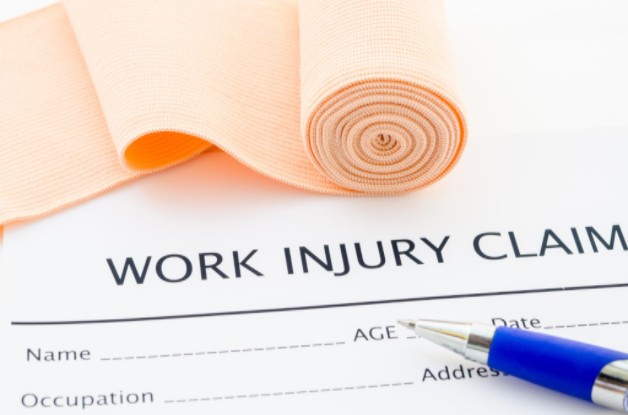
Work injuries are a reality in most professions.
Whether working on a construction site, driving a truck, or performing office work that can cause repetitive stress injuries, American workers commonly experience job-related injuries that require medical care. These injuries can also force the injured worker to take time off from work.
In the worst cases, workers experience partial or total disability.
Federal and state law protects workers who are injured on the job. It requires employers to carry workers’ compensation insurance that provides payment for medical care, lost wages and benefits, pain and suffering, and disability. This protection ensures workers against loss and financial hardship because of having held a job.
No worker should lose the benefits of his labor because of a work injury.
If you are injured, you have the responsibility to follow several steps to secure your rights to workers’ compensation. Never take a chance on losing the workers’ comp benefits you have earned.
Follow these four steps outlined below if you experience a work injury, whether it’s a back strain from repetitive motion or broken bones from a traumatic fall:
Step 1: Notify your employer
Workers’ compensation law typically requires that an injured employee notify their employer in writing within four days of an injury. Failure to complete this step jeopardizes some or all of workers’ comp benefits. Verbal notification is insufficient. Even if you have told your supervisor, you must follow up with a written notification within the time limit.
Typically, the employer must file a claim with their insurance company within a specified time frame – often ten days. If they fails to do so, you may file a claim with the state. This situation arises when an employer is negligent or does not carry a workers’ compensation insurance policy as legally required.
Step 2: See an approved doctor right away
As soon as you notify your employer of the injury, they may provide you with a list of approved doctors. Visit one of these doctors as soon as an appointment is available. In many states, the law requires employers to furnish you with a list of at least physicians that you may choose from.
If your employer fails to provide this list, contact a workers’ compensation lawyer immediately. In some cases, employers attempt to send injured workers to one specific doctor to gain an illegal advantage in fighting the claim.
Step 3: Verify claim acceptance and payments
The workers’ compensation insurer has a certain amount of time to respond to your claim. If accepted, all medical bills go to your employer. If denied, you will be billed for the medical expenses and you should seek legal consultation right away.
Additionally, if accepted and you have missed work or continue to miss work due to the injury, you’re entitled to receive two-thirds of your wages for every hour missed. The payment is two-thirds because workers’ compensation payments have no tax or other withholdings. Your workers’ comp checks should essentially equal your normal take-home pay and must be made to you every two weeks.
Step 4: Respond to claim denial
If denied, you have the right to apply for a hearing to review your case. Some claim denials are due of missing information, in which case approval occurs upon submission of all information. Other claim denials happen because the employer or insurer intends to fight the claimant’s eligibility.
When the insurance company denies a claim, the claimant has the right to appeal to the state workers’ compensation board. In such cases, consulting with a workers’ compensation attorney is essential.
When litigation results from a denied claim, injured workers are at risk of being held responsible for medical bills that far outweigh their earnings. They may also lose their life savings because the injury prevented them from earning income. Cases resulting in long-term loss of income can result in workers losing their homes and going bankrupt.
No worker should suffer this distress because of working. Unfortunately, there are cases where unscrupulous actors will fight good claims. In these situations, a tough, experienced litigator can force them to accept responsibility or take them to court.
Keep in mind that time limits do apply to workers’ comp claims. If denied, you should contact a worker’s compensation attorney right away.


